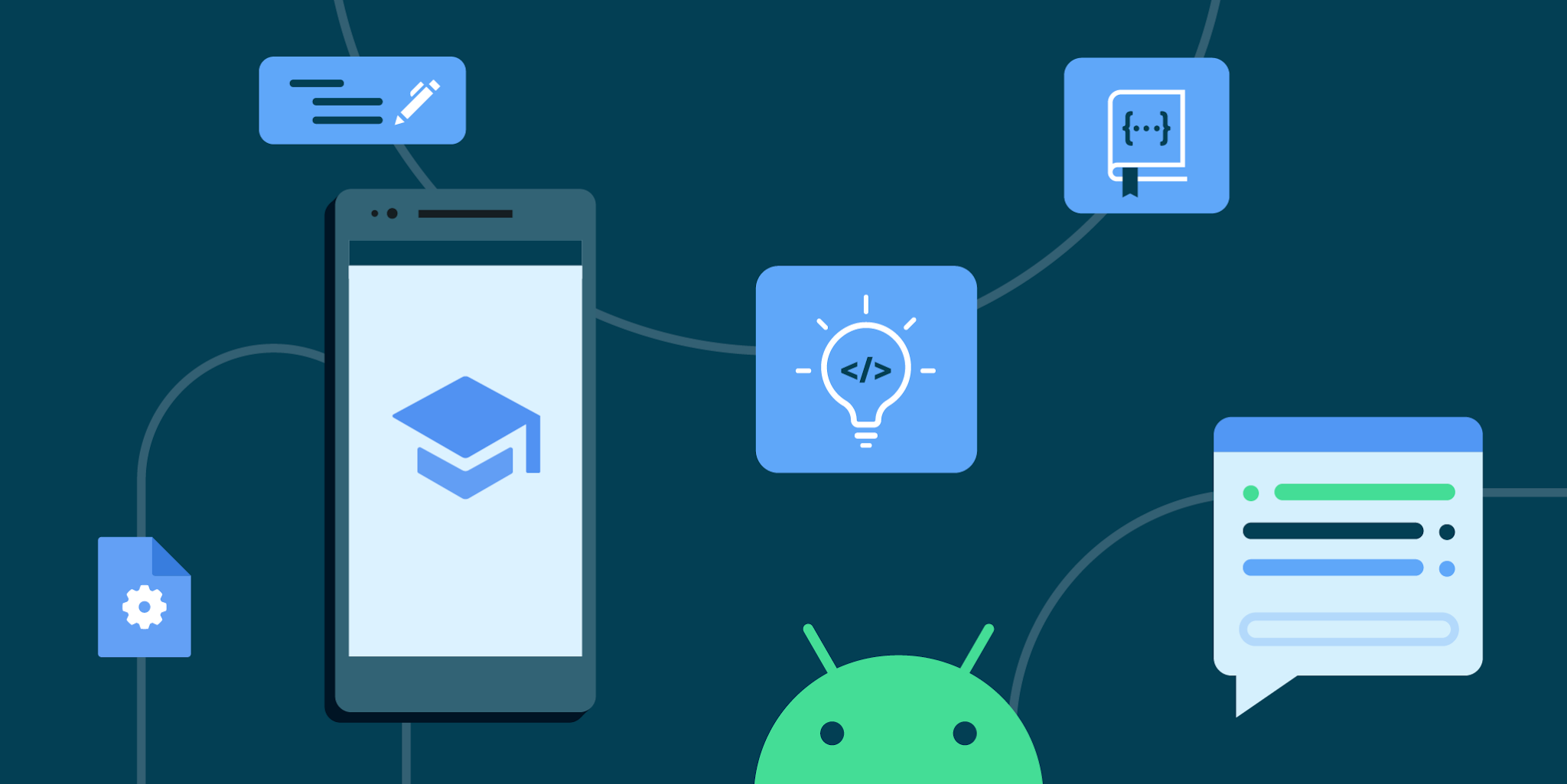Posted by Kat Kuan, Developer Advocate, Android
We strive to make Android development content accessible to all, so that anyone can become an Android developer. Over the years, millions of students at all different levels have consumed our learning content and worked through courses and codelabs to advance their skills. We continue to update and release new content as the ever-changing industry continues to evolve.
As demand for skilled Android developers increases in the job marketplace, there is an even greater need for educators to train the next generation of Android developers. That is why we created these resources to help support and empower educators.
New Android Development with Kotlin instructor-led curriculum
Today we’re announcing the launch of our new instructor-led curriculum for Android Development with Kotlin. This is for classroom learning (virtual or in-person) with an instructor delivering lectures on important Android concepts, and students receiving hands-on practice through codelabs. The official course materials are now available and can be freely modified by instructors to adapt to their students’ needs.
This is a major update to the curriculum we released in 2018. The updates account for the most recent changes in the Android platform, from the release of the Android Jetpack libraries to Android development becoming Kotlin-first. The Kotlin programming language helps developers become more productive with more concise syntax and improved code safety. Over 60% of professional Android developers already use Kotlin, and it’s Google’s recommended programming language for new developers building Android apps. While instructors do not need Android or Kotlin experience to teach the curriculum, prior programming experience is recommended.
We’ve partnered with universities and skilling partners in India such as Shivaji University, I. K. Gujral Punjab Technical University, Chandigarh University, Ganpat University, Telangana Academy for Skill and Knowledge (TASK), and Information and Communication Technology Academy of Kerala, who will be some of the first to offer this curriculum to their students in the Spring, with more universities to follow in the Fall and coming semesters. With the curriculum now available publicly, educators are welcome to start teaching Android development.
“As it’s mostly a hands-on course, students learn implementations which helps them in their placements in Mobile app companies.” -Dr. Kavita S. Oza, Shivaji University
Android Study Jams content now available for all developers
Outside a formal classroom, learning in a peer group has also been shown as an effective way to learn Android. That is why we’re also making the Android Study Jams program available to all developers today. Android Study Jams enables a group of people to come together and learn Android development through hands-on codelabs in an online curriculum. An instructor is not needed to deliver lectures, but it is recommended to have a facilitator to organize the group meetings. No programming experience is needed to get started. Over 38,000 students in Google Developer Student Clubs around the globe have already participated in this program.
“Introducing people to Kotlin and being by their side at this first step which could touch their lives created great happiness and excitement for us.” - Ceren Tunay and Serkan Alc, Developer Student Club Turkey
With many paths to learning, it is always interesting to see the different journeys of students who become Android developers, and exciting to see the resulting personal success, innovative apps, and entrepreneurial pursuits they have. The following video highlights two developers and how learning Android development has shaped their careers.
For more details on these new offerings, check out the Android Development Resources for Educators.
For independent learners, we also offer self-paced learning content, Udacity courses and Nanodegrees, YouTube videos, and more resources on developer.android.com. Keep us posted on how your learning journey goes!



